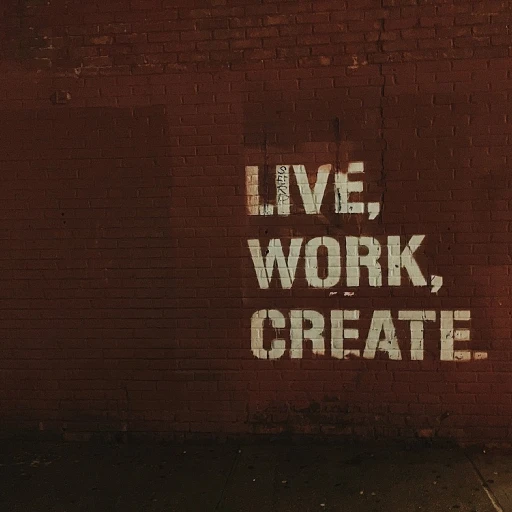
Understanding the Need for Employment Verification
Navigating the Importance of Employment Verification
The need for employment verification arises from various situations, whether you're an employer confirming a candidate's credentials or an individual researching a person's professional background. This process is not only vital in ensuring the accuracy of employment details but also regularly used by human resource departments, landlords, and lenders. Public records, including employment history, can help in finding out where someone works or has worked in the past. To highlight the significance of this practice, consider how employment verification can prevent potential issues such as hiring unqualified candidates or extending credit to someone with a fabricated job history. Moreover, for social care or health social organizations, verifying employment details ensures that trustworthy individuals are involved in sensitive areas. While traditional methods like contacting previous employers still play a role, they may introduce delays and are often tedious. Understanding the evolving landscape of employment history in background checks can help navigate regulations and stakeholders' expectations effectively. Furthermore, the increasing use of digital data, such as leveraging LinkedIn profiles or social media, contributes to making this process more efficient. For instance, employment records accessible online allow for quick verification without the need for unnecessary hassle. Yet, it's crucial to consider privacy policies and ethical guidelines when conducting such searches to ensure a fair and legal approach. As we embrace more advanced verification tools, it is essential to remain updated on legal frameworks and innovations to understand how they reshape the future of employment verification.Traditional Methods of Employment Verification
Exploring Conventional Approaches
For anyone looking to find out where someone works, traditional methods of employment verification have long been the cornerstone of this practice. These methods often require a keen understanding of the employment landscape and an awareness of what can be legally and ethically obtained. One of the most common methods historically used by employers and investigators alike is reaching out directly to a candidate’s previous or current employers. This could involve contacting human resources departments or managers to confirm job titles, length of employment, and other work details. Although effective, this approach depends heavily on the responsiveness and cooperation of the employer. Public records serve as another resource that can sometimes provide employment details. These records can occasionally list employment information, especially if a person has held a public role. However, searching through public records can be time-consuming and may not yield comprehensive results. Social care services and health social records might also contain professional information, albeit infrequently. However, these are not always reliable sources for such information, and accessing them can be limited by privacy policies. Moreover, professional networking sites like LinkedIn have become invaluable. Many people update their profiles with job titles, company names, and employment history, providing a public view into their professional associations. While this does offer a glimpse into someone’s work life, the information could be incomplete or outdated as it relies on self-reported data. Courses, certifications, and professional memberships listed on such profiles can offer additional layers of insight beyond employment. However, the need for further verification still remains. It's important to acknowledge while these traditional methods can be effective, they come with their own set of challenges and limitations. For those interested in integrating newer technologies into their processes, exploring the role of employment verification APIs in modern background checks could provide a more efficient and comprehensive approach. By understanding the evolving landscape of employment verification, it becomes easier to navigate the interplay between conventional methods and modern-day digital solutions.Digital Tools and Platforms for Employment Checks
Innovative Approaches to Employment Verification
In modern times, the landscape of employment verification has evolved significantly. Employers and individuals seeking to verify employment details and uncover where someone works have access to a variety of digital tools and platforms that streamline the process, making it more efficient and reliable. Let's delve into the main technologies transforming how we approach employment checks today.
Digital Employment Databases
One of the key innovations is the emergence of digital databases that compile employment data. These databases gather information from sources such as public records, social media profiles, and official employment records to provide comprehensive employment verification. Some services offer access to extensive employment histories, allowing employers to confirm job titles and employment duration swiftly.
People Search Engines and Public Records
People search engines have become incredibly popular tools for verifying employment details. These platforms aggregate information from public records, social media, and other online sources to display employment data for individuals. Within seconds, they can help find person attributes, such as current job title and company name, enhancing the traditional methods of verification.
The Role of Social Networks
Social media sites, particularly LinkedIn, serve as valuable resources for employment verification. LinkedIn’s professional network is often updated by users to reflect their most recent job positions, making it a reliable source for verifying someone's workplace. Using LinkedIn for these checks allows employers and individuals to cross-reference self-reported employment details against public job records.
Verification Platforms Combining Artificial Intelligence
The introduction of AI-driven platforms has revolutionized employment verification processes by improving accuracy and efficiency. These platforms harness the power of artificial intelligence to analyze data gathered from various sources, offering insights into a person's work history with minimal human intervention. They also adhere to privacy policies, ensuring sensitive data is handled appropriately.
Employment Verification APIs
An increasing number of companies are utilizing Employment Verification APIs to automate the process of employment checks. These APIs offer seamless integration with existing HR systems, enabling companies to validate employment records quickly and efficiently. This automation reduces the potential for human error, making it a more reliable method for background checks.
With these digital tools and platforms, verifying where someone works has moved beyond traditional methods, offering a multifaceted approach to uncovering employment details efficiently. However, just as technology advances, the importance of adhering to ethical standards and privacy considerations remains crucial.
Privacy Concerns and Ethical Considerations
Privacy Matters: Safeguarding Personal Data in Employment Checks
In the ever-evolving landscape of employment verification, privacy concerns are at the forefront. The intrusive nature of a background check and the potential misuse of data can often be a source of anxiety for individuals. As information about where someone works and their employment details becomes increasingly available, establishing a clear privacy policy around data use is essential for both employers and individuals. The balance between gaining necessary employment information and respecting a person’s privacy is delicate. Employers and private investigators can access public records and data, but the question remains – at what cost to individual privacy? It’s essential to ensure that the search for employment verification through people search or social media doesn't cross ethical boundaries. Key privacy implications include:- Consent: Obtaining explicit consent from the individual is not only ethical but often legally required before accessing sensitive employment records or social media information.
- Data Management: Proper handling and storage of work number and employment history data keeps the company in check and safeguards the person’s records.
- Transparency: Clearly communicating how data will be used, like through a public privacy policy, reassures people and fosters trust.
Legal Framework and Compliance
Legal Obligations for Employers
When conducting employment verification, it's crucial for employers to follow legal obligations to prevent any breach of privacy or discrimination laws. It's essential to understand that while verifying someone's work history, companies must comply with set standards and frameworks that protect personal information.
Data Protection and Privacy Laws
The laws surrounding data protection and privacy are primarily designed to safeguard a person's sensitive information. Regulations such as the General Data Protection Regulation (GDPR) in Europe and the Fair Credit Reporting Act (FCRA) in the United States require employers to handle employment data with care. For example, gaining consent before processing an individual's information is often mandatory, creating a layer of transparency and protection for people undergoing verification.
The Role of Public Records
Public records can be a valuable resource for employers seeking to verify someone's employment history. However, accessing such records must comply with relevant laws to ensure that privacy standards are not compromised. Public records can include job titles, company affiliations, and even public LinkedIn profiles or other social media platforms where people might share employment details.
Ensuring Ethical Practices in Employment Checks
For both traditional and digital methods, understanding the boundaries of investigation is key. Adhering to ethical practices not only aligns with legal frameworks but also builds trust with potential candidates. Employers should ensure that checks are pertinent to the job description and do not infringe on private aspects unrelated to employment, such as health social care unless explicitly mentioned.
The Impact of Social Media
While social media platforms provide an abundance of personal data, their use in employment verification can be fraught with privacy issues. Employers must navigate these waters cautiously, integrating social media in ways that respect a person's right to privacy while still gaining useful employment insights. It's vital to follow each platform's privacy policy and to be transparent about how this data might influence hiring decisions.













